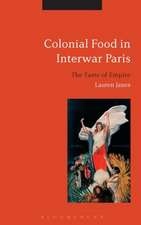Culture and Catastrophe: German and Jewish Confrontations with National Socialism and Other Crises
Autor Steven E. Aschheim, Robert Jensen Editat de Steven Aschheimen Limba Engleză Paperback – 30 noi 1997
Our understandings of culture and of the catastrophe unleashed by National Socialism have always been regarded as interrelated. For all its brutality, Nazism always spoke in the name of the great German tradition, often using such high culture to justify atrocities committed. Were not such actions necessary for the defense of classical cultural values and ideal images against the polluted, degenerate groups who sought to sully and defile them?
Ironically, some of National Socialism's victims confronted and interpreted their experiences precisely through this prism of culture and catastrophe. Many of these victims had traditionally regarded Germany as a major civilizing force. In fact, from the late eighteenth century on, German Jews had constructed themselves in German culture's image. Many of the German-speaking Jewish intellectuals who became victims of National Socialism had been raised and completely absorbed in the German humanistic tradition.
Steven E. Aschheim here engages the multiple aspects of German and German-Jewish cultural history which touch upon the intricate interplay between culture and catastrophe, providing insights into the relationship between German culture and the origins, dispositions, and aftermath of National Socialism. He analyzes the designation of Nazism as part of the West's cultural code representing an absolute standard of evil, and sheds light on the problematics of current German, Jewish, and Israeli inscriptions of Nazism and its atrocities.
| Toate formatele și edițiile | Preț | Express |
|---|---|---|
| Paperback (1) | 235.86 lei 43-57 zile | |
| NEW YORK UNIVERSITY PRESS – 30 noi 1997 | 235.86 lei 43-57 zile | |
| Hardback (1) | 522.45 lei 43-57 zile | |
| NEW YORK UNIVERSITY PRESS – 31 dec 1995 | 522.45 lei 43-57 zile |
Preț: 235.86 lei
Nou
45.13€ • 47.25$ • 37.34£
Carte tipărită la comandă
Livrare economică 07-21 aprilie
Specificații
ISBN-10: 0814706428
Pagini: 288
Dimensiuni: 137 x 141 x 18 mm
Greutate: 0.27 kg
Editura: NEW YORK UNIVERSITY PRESS








